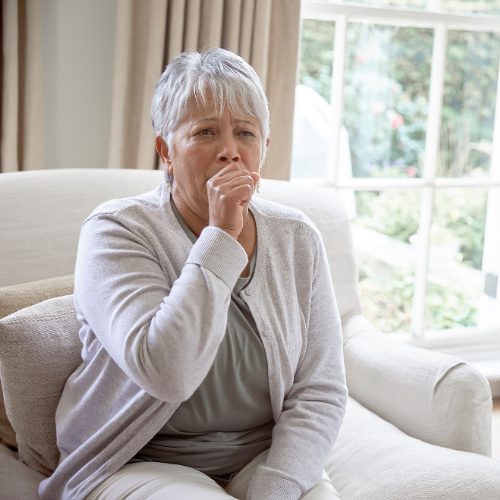November is Lung Cancer Awareness Month. At Vitality Home Health we care for a lot of customers suffering from a wide range of cancers.
Lung cancer tends to affect people as they age and it is rare for anyone under 40 to be diagnosed. Seniors are at a much higher risk of developing lung cancer, so it is essential to understand the symptoms of lung cancer and act accordingly.
The Symptoms of Lung Cancer in Seniors
- Coughing that gets worse and does not go away.
- Chest Pains
- Shortness of breath
- Wheezing
- Coughing up blood
- Feeling tired all time.
- Weight loss with no known cause
If you have any or all of these symptoms it is definitely time to contact your GP. You should always listen to your body and if something does not feel right you need to speak with your doctor as early diagnosis is key.

Making contact with your GP
The first and most important thing to remember is you are not going to be wasting their time. If you have any concerns about your health your GP is there to listen, diagnose or refer.
Be honest with your GP – tell them everything you are concerned about, however insignificant you might think it is.
Be thorough – tell them everything, don’t just put it down to getting older, or assume that it is linked to an existing condition.
Be prepared – think about how to describe the changes you have noticed and for how long you have had them. If it feels right, take a pen and paper to make notes.
If you are worried or concerned in any way, take a family member or friend with you to the appointment.
After your GP visit
- Go for the tests you are referred for, as with making contact with your doctor, you are not wasting anyone’s time.
- Take any medication prescribed for you.
- Follow up – your GP might ask you to call back after a period of time. Do call back.
- Stick with it – if your tests come back negative and cancer is not diagnosed but you continue to have symptoms, speak to your GP again, so other causes can be investigated.
- Seek support – if you are concerned about your health still, speak with family, friends or organisations that can help you.


